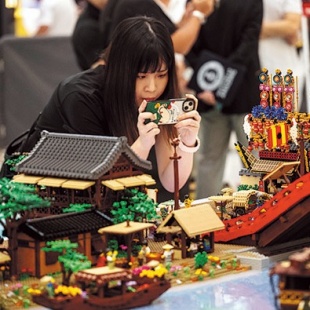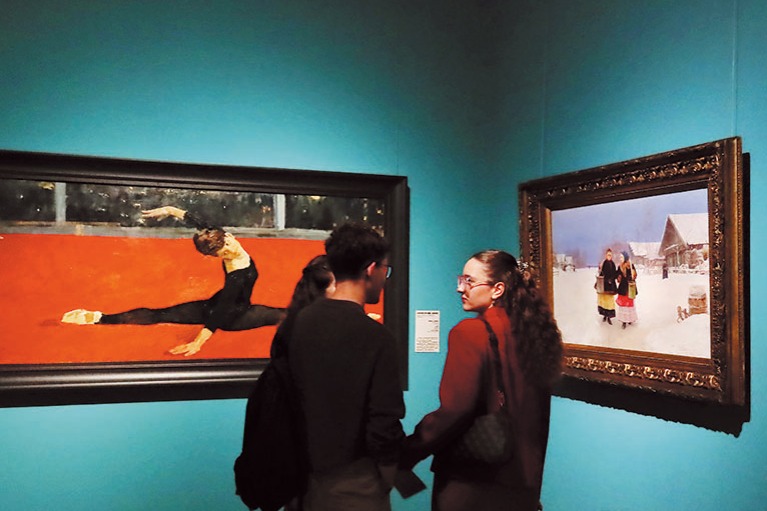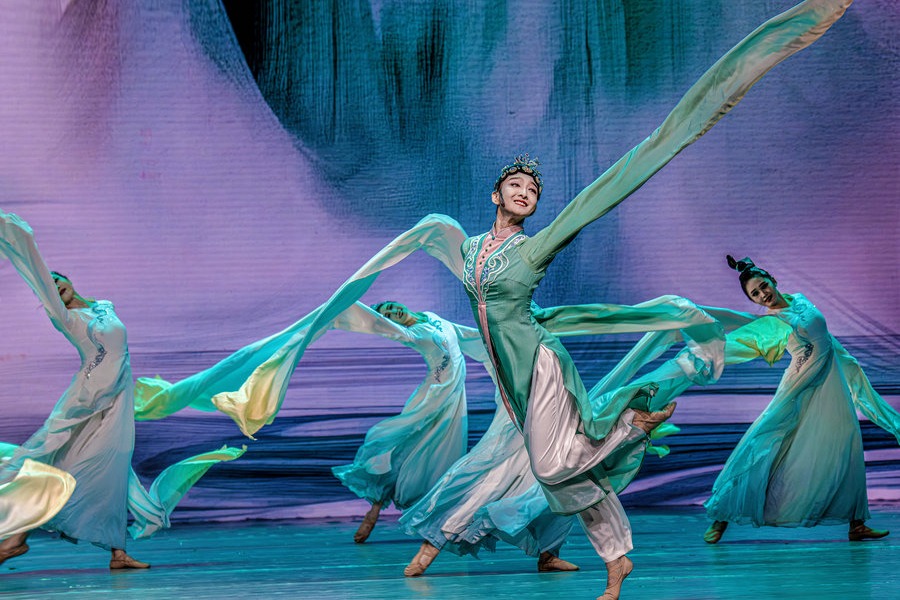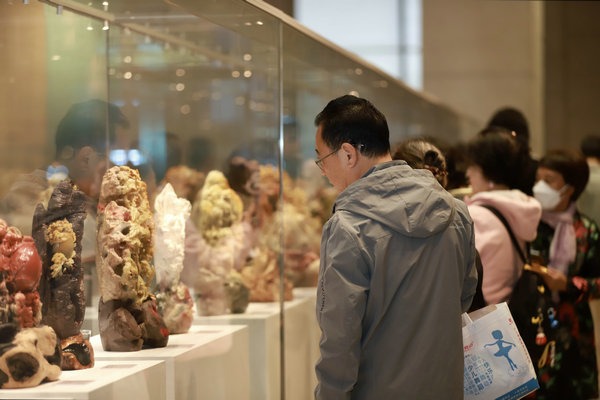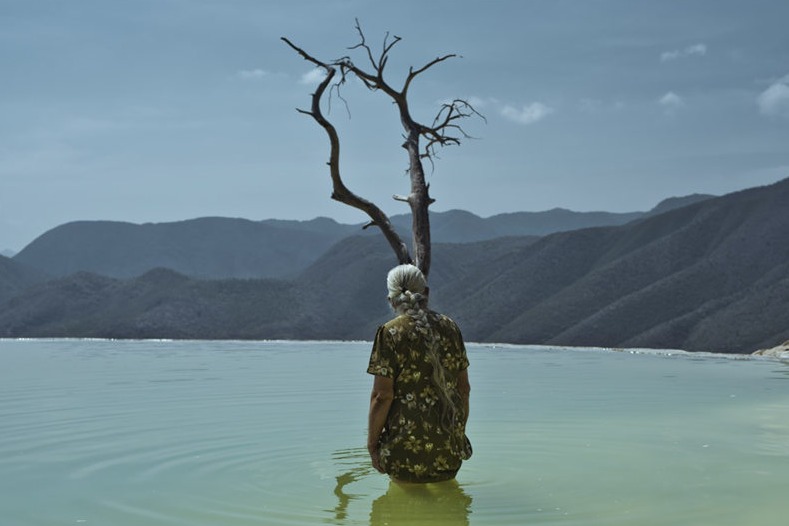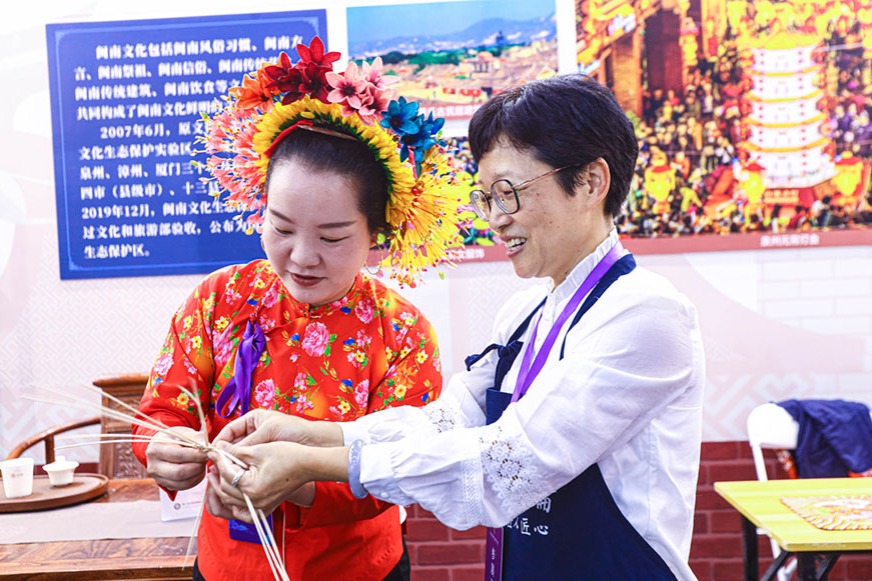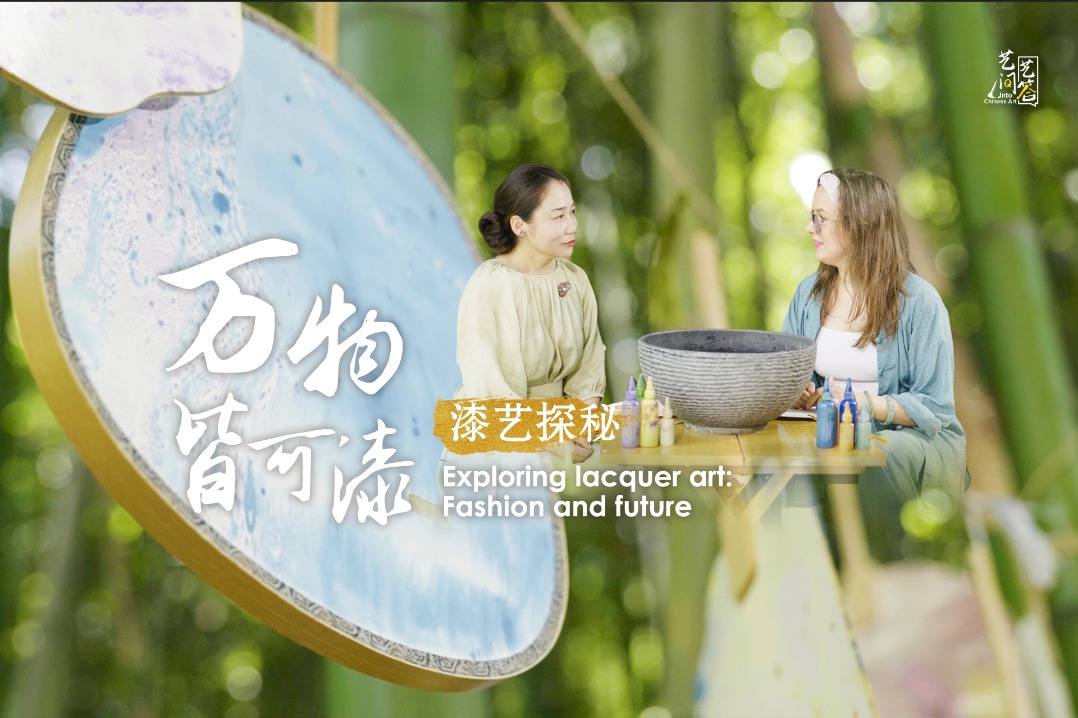World's largest Lego exhibit reconstructs iconic ancient Chinese scroll

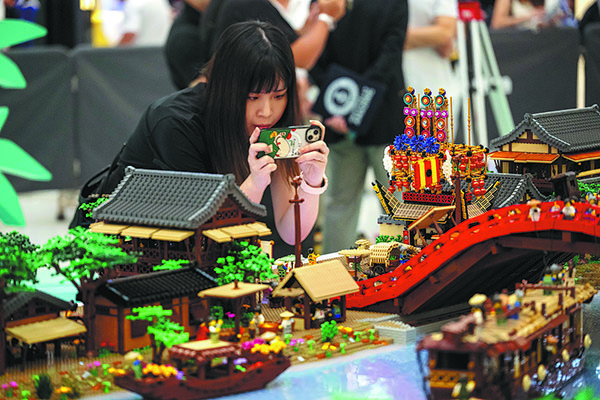
HONG KONG — This month, the National Day Golden Week from Oct 1 to 7 saw tourists flocking to New Town Plaza in Sha Tin, the eastern New Territories in Hong Kong, to witness a new Guinness World Record.
A long scroll of Along the River During the Qingming Festival, an iconic painting of the Northern Song Dynasty (960-1127), is unfolded and on display, ingeniously constructed from Lego bricks.
Covering 47 square meters, the world's largest Lego exhibit, showing Sept 25 to Oct 31, has been the latest weekend and holiday hot spot, delicately piecing together a marvelous world where the old and new converge.
For visitors, the exhibit is impressive because it blends two vastly different cultural representatives from the East and the West — an ancient Chinese painting masterpiece and a classic toy that ignites childhood memories.
"We rolled out this exhibit mainly to promote traditional Chinese culture through creative events in a way that is more relaxed, entertaining and appealing to young people," says Tania Wan, deputy general manager of personal banking and wealth management with Bank of China (Hong Kong), which initiated the program.
As people walk along the 26-meter-long three-dimensional diorama made from about 3 million Lego bricks, they can picture themselves in bustling streets from centuries ago where vendors sold melons and kids played hide and seek.
"There were myriad depictions of people in all walks of life going about their daily activities and no two objects are identical," a visitor surnamed Chung says. "Everything seemed to be brought to life within seconds."
Pointing at a two-story building with a front door decorated with colorful ribbons, Li Chun-tung, an art lecturer at the University of Hong Kong, says: "This was one of the busiest restaurants then, with decorations typical of taverns and bars in the Northern Song Dynasty. It was among many buildings and structures vividly restored in this model."
The Lego diorama recaptures many details of life centuries ago, like those depicted in the painting. There were various trades including a joss stick shop, barber, fortuneteller and medical clinic, and larger businesses such as teahouses, restaurants, taverns, butchers and hawkers, as well as different means of transportation like sedans, wagons, donkeys, horses and camels.
However, program executive and Lego-certified professional Andy Hung is far from satisfied. With over 10 years as the coordinator and creator of Lego exhibitions, the veteran admits there are still details unrestored due to Lego's limitations in displaying human figures.
For Hung, it was by no means an easy job, with five months spent sorting out a blueprint. Hung has polished Lego solutions and consulted historians and architects, in addition to getting inspiration from archives.
"Every project is new to me because each time, I face a different scene, a different architecture and a different culture. Recreating these through Lego is a challenge," Hung says.
In his studio in Lai Chi Kok, Kowloon, among items on display are fun Lego re-creations stemming from traditional Chinese culture, including the Forbidden City, Peking Opera masks, Suzhou double-sided embroidered fans, the Terracotta Warriors and the Yellow Crane Tower.
"Young people in Hong Kong are very interested in recreating traditional Chinese cultural works with Lego. This time, we invited many young people and students from Hong Kong for the project and they were very passionate," Hung says.
"I am simply demonstrating traditional culture with my works and let the ingenious toys tell of traditional culture," he says.


